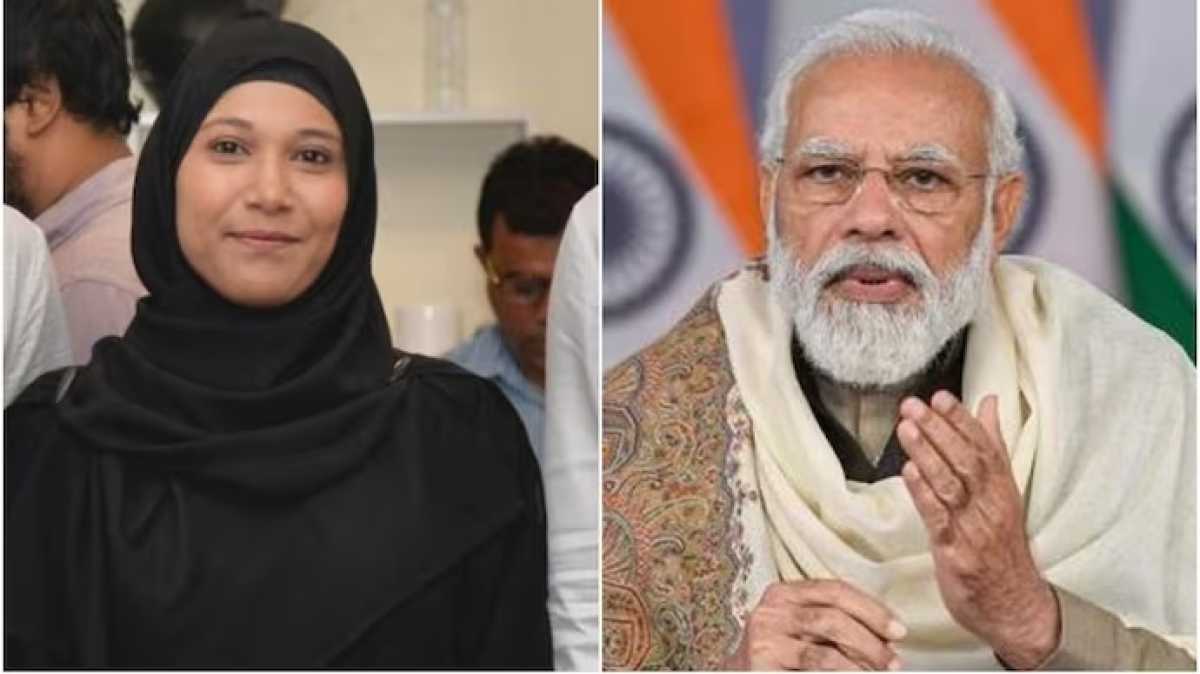Politics
Diplomatic Row Erupts Between India and Maldives After Derogatory Remarks by Ministers

Following derogatory remarks by three Maldivian ministers against Prime Minister Narendra Modi after his visit to Lakshadweep to promote tourism there, a diplomatic row has erupted with the Maldivian government distancing itself from the comments made by its ministers — Mariyam Shiuna, Malsha Shareef, and Mahzoom Majid — and suspending them with immediate effect.
Despite the Maldivian government’s prompt action against its ministers, appeals to avoid visiting the tourism-dependent island nation as a vacation destination flooded Indian social media.
According to ‘s analysis of data from the tourism ministry in Maldives, Indian residents in 2023 accounted for 11.2 per cent of the total tourist arrivals—18.42 lakh—in the island nation. The share of Indian travelers to the Maldives was just 6.1 per cent in 2018, but jumped over the next few years, partly due to changes in travel flows during and after the pandemic. In 2020, 2021, and 2022, Indian topped the list of source markets for the Maldives, with Indian tourists having a share of 11.3 per cent, 22.1 per cent, and 14.4 per cent, respectively.
Meanwhile, amid a spate of cancellation of reservations by Indian tourists, Maldivian President Mohamed Muizzu has appealed to China to “intensify” efforts to send more tourists to his country. On the second day of his five-day state visit to China, Muizzu in his address to the Maldives Business Forum in Fujian Province on Tuesday termed China as the island nation’s “closest” ally.
Muizzu came to power riding on the Opposition’s ‘India Out’ campaign, and defeated President Ibu Solih who was viewed as friendly to India. The newly-elected President is seen as a proxy of former President Abdulla Yameen who had been pro-China during his stint between 2013 and 2018.
A day after he was sworn in as President of Maldives, Mohamed Muizzu on November 18 last year “formally requested” the Indian government to “withdraw its military personnel” from the island nation. Muizzu sought the Indian withdrawal when Earth Sciences Minister Kiren Rijiju, India’s representative at the swearing-in ceremony, called on him.
Confirming that the President, during his meeting with Rijiju, brought up the issue of Indian military personnel present in Maldives for operating aircraft for medical evacuation and counter-drug trafficking purposes, sources in the Indian government said it was “agreed” that the “two governments would discuss workable solutions for continued cooperation” through the use of these platforms as this “serves the interests of the people of Maldives”.
President Muizzu has come under several criticisms from Opposition leaders that claim he is endangering the Maldives’ historic relationship with India. The current diplomatic disputes could intensify and negatively affect India and the Maldives’ international relations, despite the fact that they share a number of interests in common, including economic and strategic interests in the stable and prosperous Indian Ocean region, maritime security, and climate change cooperation.
At stake is the diplomatic and political relationship between the two countries, painstakingly built over the last about six decades.
After the British relinquished control of the islands in 1965, India established diplomatic ties. While there was no diplomatic mission in Male earlier — it was run by the Indian High Commission in Colombo till 1978 — since 1980, India has had an ambassadorial representative in the islands. After the democratic transition took place in 2008, India has built deep relationships with all relevant stakeholders — players in politics, military, business, and civil society — despite the change in governments.
The strategic location of the island nation is another point of significance for India. With its proximity to the west coast of India, Maldives is one of the key elements in India’s maritime security calculus. The security scenario in India’s periphery in the Indian Ocean is very much linked to the maritime strength of Maldives. Estimates suggest that almost 70 per cent of Maldives’ defence training is done by India — either on the islands or in India’s elite military academies.
India has trained over 1,500 Maldivian National Defence Force (MNDF) personnel in the past 10 years. The Indian Navy has given aircraft and choppers to the Maldivian defence forces for aerial surveillance, and have trained their personnel on how to land vertically in the islands.
According to a New York Times report, India is now working on significant infrastructure projects in the Maldives that neither party wants to cancel.
Besides, the expanding Chinese footprint is a matter of concern for India. On Wednesday, Chinese President Xi Jinping held talks with his Maldivian counterpart Mohamed Muizzu following which the two countries signed 20 key agreements, including one on tourism cooperation, and elevated their bilateral ties to a comprehensive strategic cooperative partnership.
The agreements signed included one tourism cooperation, disaster risk reduction, blue economy, strengthening investment in the digital economy and the Belt and Road Initiative. China will also provide grant assistance to the Maldives, but the amount was not disclosed.












